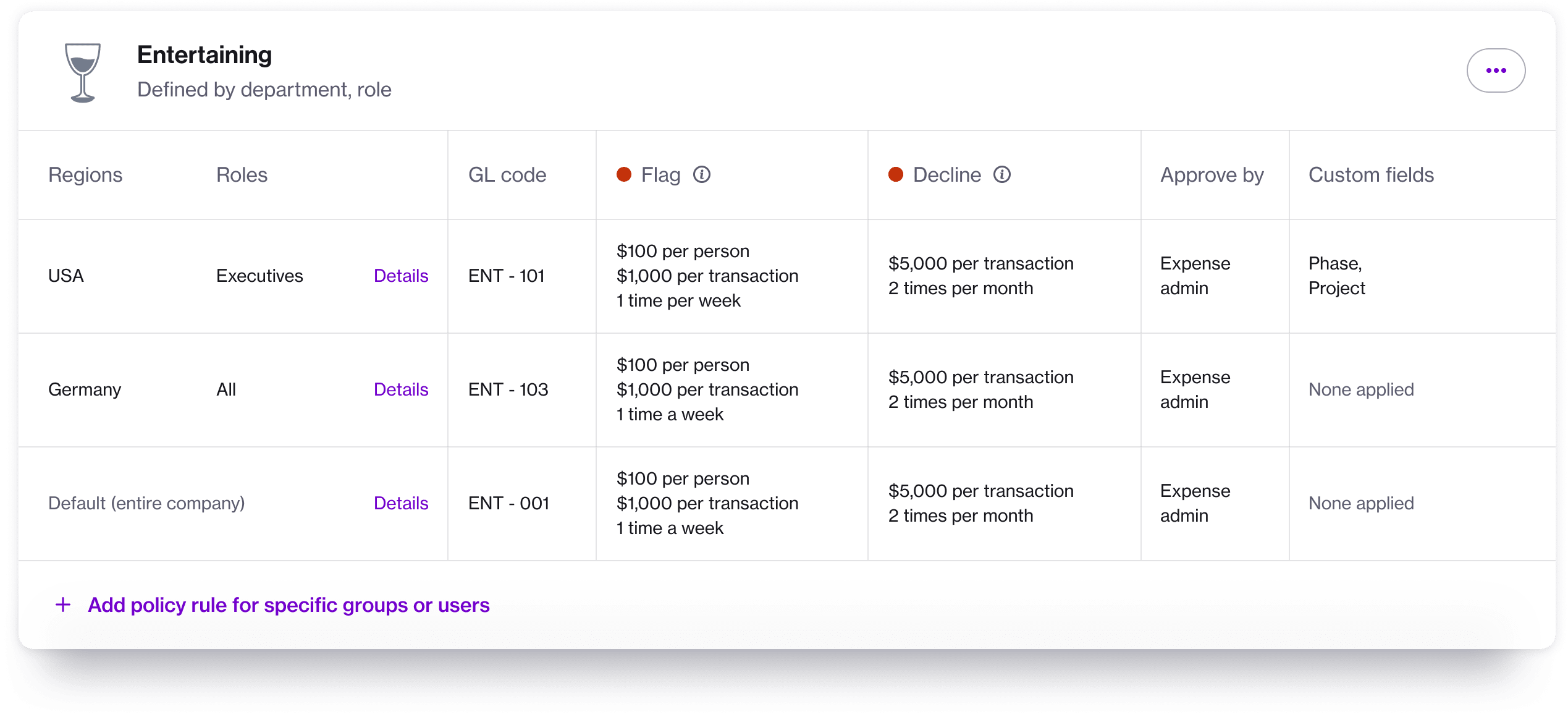Creating a Travel Policy: Tips and Best Practices

A well-defined corporate travel policy is more than simply a set of rules for business travelers to follow. It is a tool that helps make business travel as effective, cost-efficient, and easy as possible for everyone involved. A travel policy:
- Sets clear guidelines for business travel
- Outlines expenses that are covered
- Provides information on the approval process, booking process, and reimbursement process
- Clarifies travel practices and travel expenses to all employees
A travel policy is critical for managing travel costs, promoting responsible employee behavior, and ensuring compliance with legal requirements.
Consider the following tips and best practices when creating a corporate travel policy.
What is a corporate travel policy?
A corporate travel policy outlines how to approve, book, and expense travel for business purposes.
The policy is typically created by a company’s finance or travel manager, and it may live as a static travel policy document or be built into the travel management software that a company uses.
Clearly defined travel policies can positively affect all stakeholders that take part in a company’s business travel process, including traveling employees, finance and travel managers, human resources, and the business as a whole.
Pros for traveling employees
- Clearly defined rules and regulations for travel arrangements
- Freedom to book their own travel — within company guidelines
- Peace of mind that they are adhering to booking compliance
Pros for finance and travel managers
- Clarify rules and reduce confusion for traveling employees
- Lessen frustration over expenses and reimbursements
- Free up time spent explaining rules to employees
Pros for companies
- Set up rules to track expenditures and costs associated with business travel
- Reduce total business travel costs
- Encourage fairness and foster a positive company culture
Define your travel objectives
Before creating a company travel policy, it's essential to determine the purpose of business travel and what specific goals the company hopes to achieve.
Otherwise, it will be difficult to establish guidelines for determining which trips are necessary for business purposes and which are not.
Defining cost savings objectives is also important. Having clear cost objectives in mind can help finance and travel managers measure the success of the company’s business travel program and make informed decisions about future travel plans.
Set guidelines for business travel
An effective corporate travel policy needs to set guidelines for the varied types of travel that company employees undertake. Some of the fundamental pieces include:
- Details on what constitutes permissible travel and which employees can travel
- Spend limits and booking parameters for airfare, accommodations, car rentals, and train travel
- Rules for ground transportation, such as taxicabs, rideshares, and public transportation
- Daily allowances for meals and other incidental expenses (aka per diems)
- The timeframe in which business travel should be booked (i.e., how many business days in advance a trip should be booked)
- Acceptable systems of payment for any expenses incurred during travel (i.e., personal or business credit cards only, or a combination)
- Processes for expense approval that employees and managers need to follow
- Processes for reviewing any exceptions
- Processes for completing expense reports
- Allowable upgrades, such as business class airfare
- Any restrictions on reimbursements, such as dry cleaning, entertainment expenses, mini-bar, Wi-Fi charges, or related expenses
Consider personal travel, too
It's important to establish clear guidelines for personal travel or any personal expenses that are not covered under your business travel policy. This can help avoid confusion and ensure that employees know exactly what is expected of them.
There has been a rise in the number of leisure travel extensions to business trips in recent years. The latest Navan data shows that 35% of all business travel bookings now include a weekend.
Companies are taking it upon themselves to embrace the addition of personal time on business trips as a way to:
- Support employee work-life balance
- Encourage the use of vacation days
- Improve company culture and employee retention
Assess employee safety
Duty of care is a company’s moral and legal obligation to care for employees while they're conducting business.
From a global pandemic to a natural disaster, preparing for the unexpected in business travel is crucial for managing risk, ensuring business travel continuity, and protecting employees on the road.
A realistic duty of care policy is important to ensure employee travel safety, especially when international travel is a factor. While challenges will vary based on your organization’s size, industry, and scope of business travel, it’s critical to evaluate how the company is delivering on duty of care.
Consider purchasing travel insurance to cover your employees in case of medical emergencies or trip cancellations. Additionally, provide employees with guidelines for avoiding theft or personal danger, such as not carrying large amounts of cash or displaying expensive jewelry.
Provide clear communication and training
Effective communication is key to the success of your travel policy. To ensure policy compliance:
- The travel policy needs to be communicated clearly to all employees
- Employees need to be trained on any relevant procedures, such as the travel booking process and reimbursement process
Previously, companies needed to rely on static travel policy documents that were difficult to change and quickly became outdated. Today, technology has allowed companies to build flexible, dynamic, and effective travel policies.
Navan, an all-in-one travel, expense management, and credit card solution, allows administrators to build travel policy directly into the platform. The software then displays a company’s corporate travel policy during the travel booking experience and automates policy compliance through its expense management technology. Travelers know immediately what expenses are appropriate, and finance and travel managers can make updates to policies as situations and business needs change.

Consider a travel and expense management solution
A travel and expense management solution is software that manages all components of a company’s corporate travel program. It combines a travel booking platform and expense management tool to improve the booking process and employee travel experience.
With Navan, finance and travel managers can build expense policies into the software that determine how much, where, and when employees can spend. For example, if a company has a price cap on a room rate and an employee books over the cap, the expense will be flagged for review. Whether one person or an entire finance team is managing expenses, the approval workflow is automated, so the countless hours normally spent reconciling the budget are saved.
With a consumer-grade user experience available on both desktop and mobile, employees can independently book travel, manage itineraries, and document expenses. The time finance and travel managers need to train employees is drastically reduced, if not eliminated altogether.
A travel and expense solution like Navan can balance employees’ needs with the company's goals. It gives employees the power of choice when booking travel and helps companies maintain control over travel spend while meeting duty of care obligations.
Essential reading:
This content is for informational purposes only. It doesn't necessarily reflect the views of Navan and should not be construed as legal, tax, benefits, financial, accounting, or other advice. If you need specific advice for your business, please consult with an expert, as rules and regulations change regularly.
More content you might like
Take Travel and Expense Further with Navan
Move faster, stay compliant, and save smarter.
